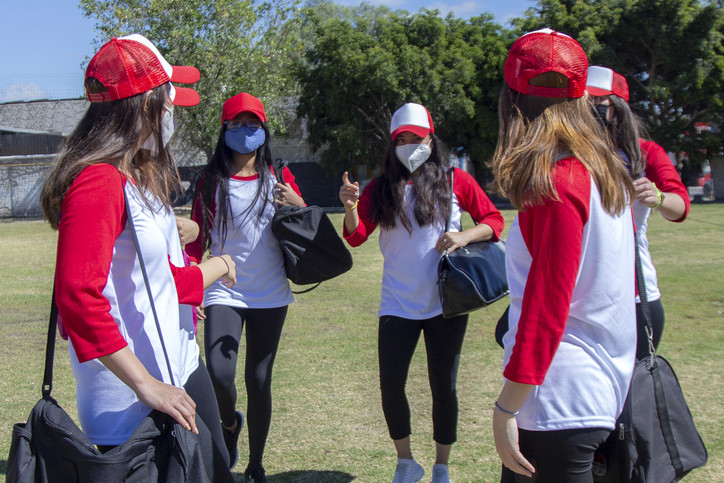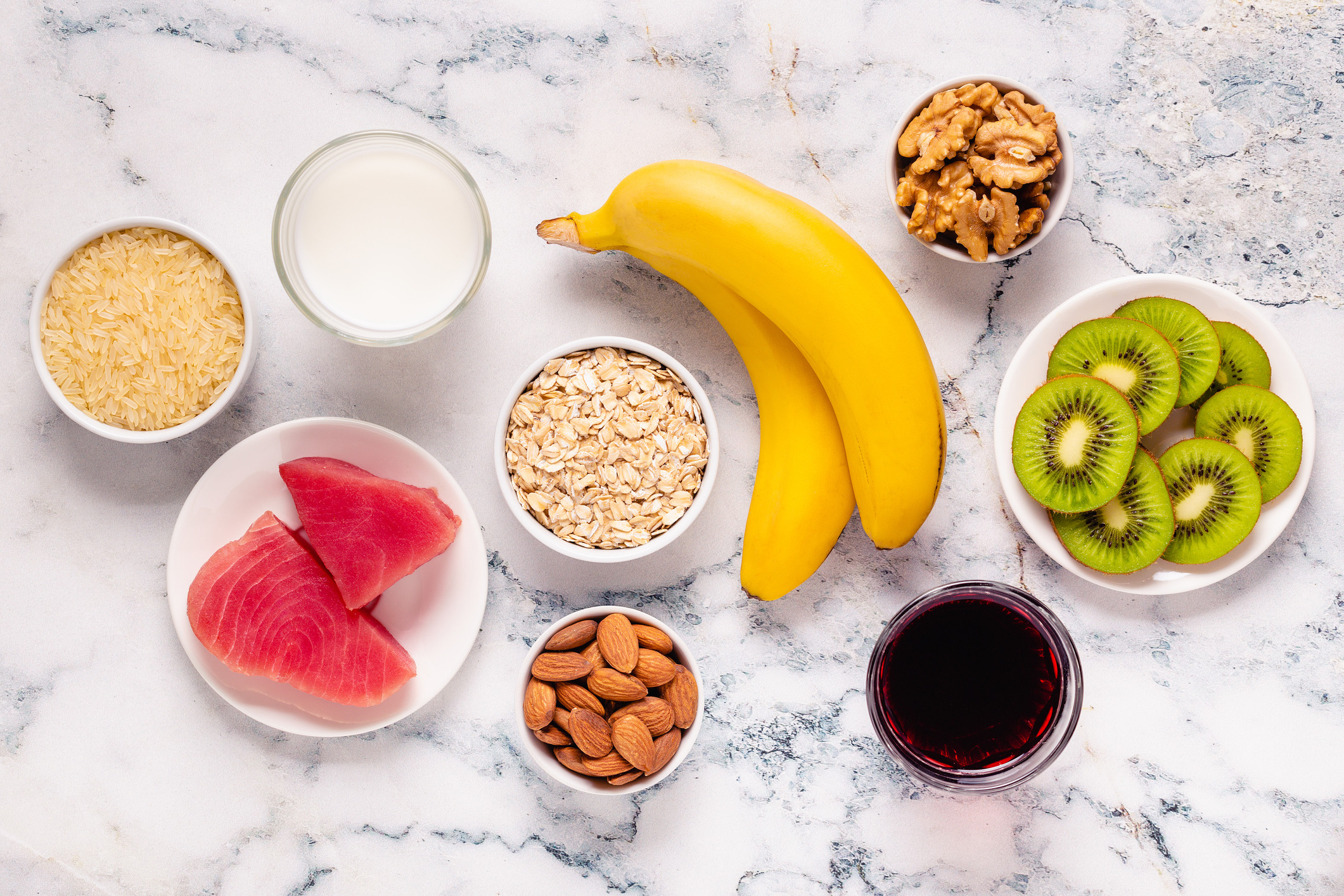
Zinc: What it does for the body, and the best food sources

Respiratory health harms often follow flooding: Taking these steps can help

Tips to leverage neuroplasticity to maintain cognitive fitness as you age

Can white noise really help you sleep better?

Celiac disease: Exploring four myths

What is prostatitis and how is it treated?

What is Cushing syndrome?

Exercises to relieve joint pain

Think your child has ADHD? What your pediatrician can do

Foam roller: Could you benefit from this massage tool?
Harvard Health Blog
Read posts from experts at Harvard Health Publishing covering a variety of health topics and perspectives on medical news.
Articles
Simple, low-cost, low-tech brain training
Mentally stimulating activities help the brain create new connections that may prevent cognitive decline as people get older, and there are plenty of simple, low-tech ways to sharpen your thinking that are budget-friendly.
School reopening? What parents need to know and can do
Fully vaccinated against COVID-19? So, what can you safely do?
Omega-3 fatty acids and the heart: New evidence, more questions
Omega-3 fatty acids from fish and fish oil have been recommended by the American Heart Association for the past 20 years to reduce cardiovascular events in people who already have cardiovascular disease. But the results of studies of omega-3 supplements have been mixed, leaving both doctors and patients still wondering what to do.
Beyond CBD: Here come the other cannabinoids, but where’s the evidence?
Given the interest in CBD and the exploding popularity (and big business) of products that contain it, it was only a matter of time before new cannabinoids were discovered and commercialized. But many of these substances have been studied only in animals so far, meaning it is too soon to say if any of their potential benefits will apply to humans.
Zero weight loss from zero calorie drinks? Say it ain’t so
Trying to cut back on calories by drinking diet soda or flavored sparkling water may not help with weight loss, and some research suggest it may actually lead to weight gain. But why, and what are the alternatives?
Returning to sports and physical activity after COVID-19: What parents need to know
Most children and teens who have COVID-19 recover completely, but rarely there can be damage to a child’s heart muscle, and the stress of exercise on a damaged heart could lead to a serious condition. Here’s what parents need to know about recent guidance from the American Academy of Pediatrics for children returning to physical activity after COVID-19.
Numb from the news? Understanding why and what to do may help
The daily onslaught of news during the past year has left many people in a steady state of fatigue, resignation, and grief. The symptoms of collective trauma are widespread and familiar, but one merits special attention: numbness, which is one possible response to an overwhelming situation.
Racial disparities and early-onset colorectal cancer: A call to action
In the last decade, overall rates of colorectal cancer have been falling among the general population in the US. However, African Americans are more likely to develop colorectal cancer at younger ages, and to die from it. The reasons for this disparity are unclear, but they are rooted in socioeconomic and racial inequities.
4 essential nutrients — are you getting enough?
The latest update to the Dietary Guidelines for Americans states that many people are not getting enough of four essential nutrients: calcium, potassium, dietary fiber, and vitamin D. But how much of these nutrients should you aim for and what are some good sources for them?
Agoraphobia: Has COVID fueled this anxiety disorder?
But I don’t feel like exercising…
For a long time, the implicit message about fitness has been that it only counts if you are doing it with certain clothing, shoes, equipment, and facilities. This can make people feel that exercise is not for them. Expanding the idea of what counts as exercise — and making it fun — can help motivate people.
You got the COVID-19 vaccine? I have vaccine envy
Got vaccine envy? Not only has the pandemic upended our lives, differing state priorities and restrictions on eligibility for highly effective COVID-19 vaccines are fueling feelings of jealousy and unfairness that encourage questionable actions and ethics.
Glaucoma: What’s new and what do I need to know?
Glaucoma, the second leading cause of permanent blindness in the US, is a group of disorders that damage the optic nerve. It is a complex disease, and while there is currently no cure, diagnosis and prompt treatment can slow or stop progression of vision loss. All adults should have regular eye exams starting at age 40, whether vision is normal or not.
A look at the 2020–2025 Dietary Guidelines for Americans
The Dietary Guidelines for Americans, which are published by the US Department of Health and Human Services and the US Department of Agriculture and are updated every five years, have been updated for the 2020–2025 period. While each iteration builds on the previous set of guidelines, there are some changes this time around, and some items that could have been changed but were not.
Could what we eat improve our sleep?
Diet, exercise, and sleep work together, and all three can have an effect on our daily well-being and longevity. Sleep impacts our eating patterns, and our eating patterns affect our sleep: lack of quality sleep may make people eat more, and make less healthy food choices, but certain foods contain substances that may enhance sleep.
What is COVID-19 brain fog — and how can you clear it?
We’ve all experienced the feeling of sluggish, fuzzy thinking and a lack of sharpness, possibly caused by an illness or a medication. But what if that feeling didn’t go away and your thinking didn’t return to normal? That’s the situation for some people who have recovered from COVID-19, and there can be long-term effects on other organs as well.
Heavy metals in baby food? What parents should know and do
Worrisome levels of arsenic, lead, and other elements called heavy metals that can harm the developing brain are found in some commercial baby foods, according to a recent report. Here’s what parents should know and can do to protect young children.
My COVID-19 vaccine story –– and what happened next
Now that COVID-19 vaccines are starting to become more widely available, some people wonder what it’s like to receive one. One doctor shares her story –– including what happened when close family members became sick with COVID.
The hidden long-term cognitive effects of COVID-19
it is becoming increasingly clear that COVID-19 affects the nervous system along with the respiratory system. Research is suggesting that this may result in long-term neurologic damage in those who survive a COVID infection, including evidence of effects on cognitive function.
Acne: Considerations for darker skin
People with darker skin face particular challenges from acne. The release of melanin from skin inflammation can cause scarring or dark spots that can last for months or longer, and this is more likely to occur in people with darker skin. Treatment can help improve or prevent these conditions.
5 unusual types of headaches
Some types of headaches are easily recognizable, while others are less common, and if one occurs the symptoms can be puzzling or even frightening. When unusual or frequent headache occurs, take note of the symptoms so that you can describe them accurately to your doctor.
Is crying good for you?
Crying is a natural response to a range of emotions, but is it good for your health? Crying is an important safety valve: it acts as a safety valve for our emotions, and emotional tears flush stress hormones and other toxins out of our systems.
New school guidelines around COVID-19: What parents need to know

Zinc: What it does for the body, and the best food sources

Respiratory health harms often follow flooding: Taking these steps can help

Tips to leverage neuroplasticity to maintain cognitive fitness as you age

Can white noise really help you sleep better?

Celiac disease: Exploring four myths

What is prostatitis and how is it treated?

What is Cushing syndrome?

Exercises to relieve joint pain

Think your child has ADHD? What your pediatrician can do

Foam roller: Could you benefit from this massage tool?
Free Healthbeat Signup
Get the latest in health news delivered to your inbox!
Sign Up

























